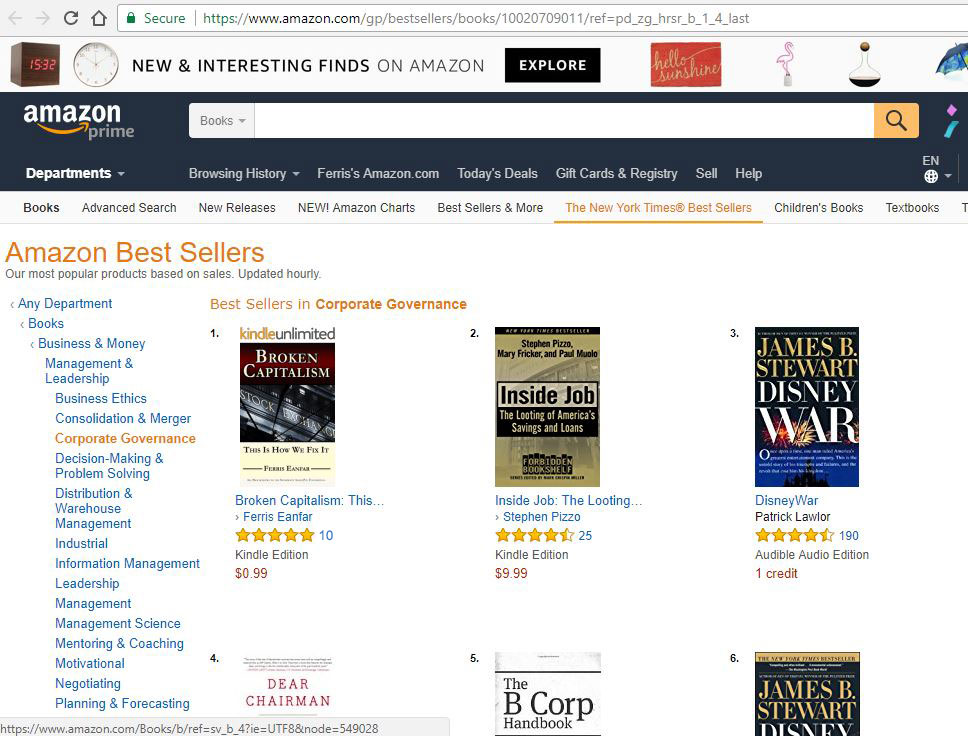Undisciplined Societies Cannot Compete in a Global Economy. Many people no longer believe wealth is created from hard work, discipline and patience. In fact, these concepts are so repulsive to some people these days that I had to consider whether to even include them in the first paragraph of this article. That brief, seemingly benign but profound moment of hesitation reminded me of a fundamental principle that can be observed from studying the rise and fall of civilizations: Whenever large segments of a society start vomiting, complaining, cursing or convulsing at the mere sight of the words “work,” “discipline,” and “patience,” you know that society is speeding blindly toward global irrelevance and self-destruction.
Sacrifice is Essential to Gratification. Of course, I’m humorously exaggerating a bit about the vomiting and convulsing, but it’s no exaggeration to say that many people have come to believe the American Dream is merely a fantasy because they are not willing to make the sacrifices that are necessary to achieve their dreams. As a result, they often either give up and live their lives in quiet desperation working in jobs they can barely tolerate or they feel entitled to instant gratification through various get-rich-quick schemes.
Complaining is a Waste of Time Unless it Inspires Action. To be sure, labor force automation, grossly inadequate and unevenly enforced banking regulation, regulatory capture by special interest groups, and Congress’ toxic economic policy blunders contribute significantly to the rising ocean of unemployed Americans. All those dysfunctional aspects of the U.S. federal government have adversely impacted virtually all Americans in many ways. I viscerally understand all that, but now what? I have no hesitation about complaining about the dysfunction of the federal government, but I never complain about anything without first developing a viable solution. Complaining is a waste of time unless it inspires us to take constructive action. This is true at the personal and national levels.
Discipline is the Bridge Between Dream and Reality. Opportunistic companies and politicians have seized upon the concept of the American Dream because they know that virtually all people would love to strike it rich—now! They make it seem like winning millions of dollars is easy. State lotteries are advertised to make us think we all have a realistic chance of winning the big payoff. But after evaluating and observing many successful entrepreneurs and senior executives over the years, I know the reality in all these cases is that the “American Dream” is not only unattainable through those schemes, their advertised version of the American Dream isn’t even true to the core spirit of the American Dream.
Earned Success is Essential to Sustainable Fulfillment. The American Dream is about more than an instant payday; it truly is about the journey. As cliché as that may seem, it’s absolutely true. How many times did you cheat on a test when you were in school, only to feel like the “payday” (your good grade) was undeserved? Did that feeling allow you to truly enjoy the benefit of a good grade? Probably not if you’re honest with yourself. Now apply that logic to your life today. Sure, it would be nice to win the lottery, but all lotteries are dependent upon luck and luck is not something you can depend on. That means luck is no substitute for hard work, discipline and patience.1
If You can Find a Way to Help People, Financial Independence Will Find You. There is something instinctively gratifying about making money by helping other people. This is one of the core principles of the corporate culture of nearly every company I have been involved with. I always tell people, don’t focus on the money; focus on improving the quality of people’s lives and the money will come. If you can find a way to help people, financial independence will find you.
How We Make Our Money is as Important as How Much Money We Make. Ultimately, every person wants to achieve the goal of financial independence, but how we make our money is at least as important as how much money we make. Having money without the emotional maturity and a purposeful personal mission for our lives inevitably leads to deep disappointment and a feeling of emptiness.
You Are Your Country’s DNA. For anybody suffering from the economic and political Toxic Cloud today, understanding how to respond to adversity can mean the difference between personal success and personal failure. However, at the national level, the collective decisions that we each make are what defines the spirit and the success or failure of a nation. That means that you are your country’s metaphorical DNA because a nation cannot survive unless its individuals have the tools, conditions, and personal values to thrive.
Notes:
1. Nearly 50% of lottery winners go bankrupt and slip into a life of misery because they lacked the emotional maturity, financial management skills, and mental discipline to manage their new-found wealth. So in some cases, winning the lottery may not be lucky at all. The only reliable and sustainable path to “lucky” wealth can be learned from the famous Thomas Jefferson and Louis Pasteur quotes, respectively: “The harder I work, the luckier I get” and “Chance favors the prepared mind.” (Yes, I know Jefferson never actually said that quote, but it’s widely attributed to him. No quote Nazi emails, please.)
About Ferris Eanfar
Ferris Eanfar has over 20 years of experience in technical, financial, media, and government intelligence environments. He has written dozens of articles and several books in the fields of Economics, Crypto-Economics, and International Political Economy, including Broken Capitalism: This Is How We Fix It and GINI: Capitalism, Cryptocurrencies & the Battle for Human Rights and the Global Governance Scorecard. Ferris is a cofounder of the Gini Foundation, which builds unique cryptocurrency systems to protect human rights, among other benefits; and the CEO of the AngelPay Foundation, a nonprofit financial services company with a mission to “return wealth and power to the creators of value.” To learn more about Ferris, please visit the About Ferris page.Visit Ferris on:

 Gini Website Coming Soon. We (
Gini Website Coming Soon. We (
